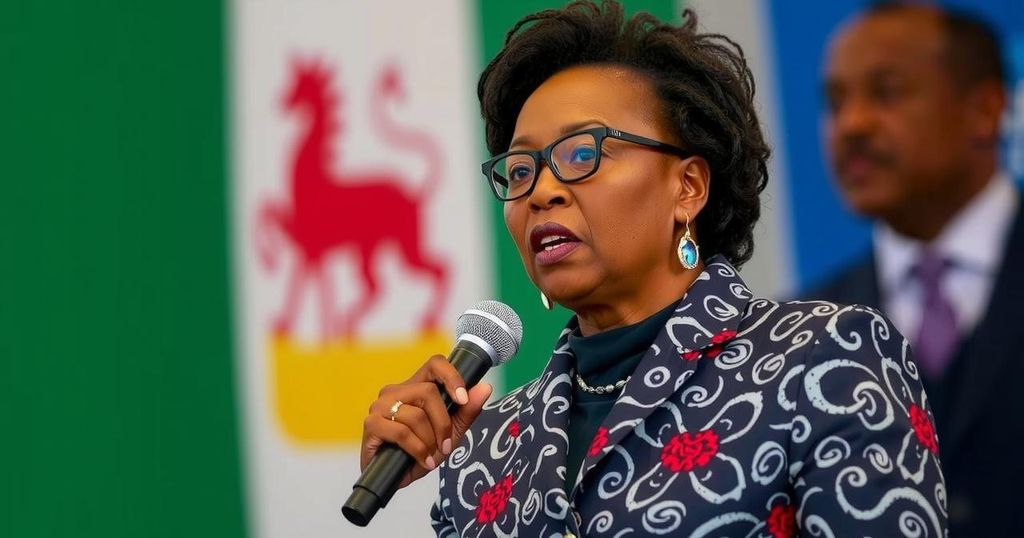Namibia’s Vice President Leads Controversial Presidential Election
Namibia’s presidential election results show Vice President Netumbo Nandi-Ndaitwah of the ruling SWAPO party leading amid significant election irregularities. Issues like ballot shortages have prompted the opposition to challenge the election process legally. As the country contends with economic frustrations, concerns over electoral integrity could impact the future of governance in Namibia.
Namibia’s ruling party, SWAPO, is currently leading in the presidential election results, which have been marred by significant technical issues that extended the voting period to three days. Vice President Netumbo Nandi-Ndaitwah, a prominent figure in the SWAPO party, is on track to potentially become the nation’s first female president, having secured approximately 56% of the early votes counted. However, the opposition has expressed discontent over the election process, claiming it was compromised due to shortages in ballot papers and other logistical challenges. This dissatisfaction may lead to legal challenges against the election results.
The Electoral Commission of Namibia, which is overseeing the elections, has stated that despite these challenges, there will be no re-election. Nandi-Ndaitwah’s candidacy stands as a significant milestone in Namibian history, considering the country’s past and the longstanding governance of SWAPO since the end of apartheid in 1990. Despite this historical potential, many Namibians face frustration regarding increased unemployment rates and corruption scandals that have overshadowed the party’s legacy.
Namibia has long been regarded as a relatively stable democracy in the southern African region, having maintained a consistent electoral process since independence. However, recent developments during this electoral period have raised alarms about the integrity of the democratic process. As voters cast their ballots amidst logistical failures—including a severe shortage of ballot papers—the opposition has voiced concerns regarding the legality and fairness of the voting extension granted by election authorities. Such issues threaten to undermine the democratic credentials of a party that has governed for more than three decades since the country gained independence from apartheid South Africa.
In summary, Namibia’s presidential election is witnessing early leads by the ruling SWAPO party, specifically Vice President Netumbo Nandi-Ndaitwah, amid significant challenges related to the election’s execution. Questions surrounding the legitimacy of the process could lead to legal confrontations from opposition parties, marking a pivotal moment in the nation’s political landscape. As Namibia navigates these issues, the focus remains on ensuring that democratic practices are upheld for the benefit of all its citizens.
Original Source: apnews.com




Post Comment